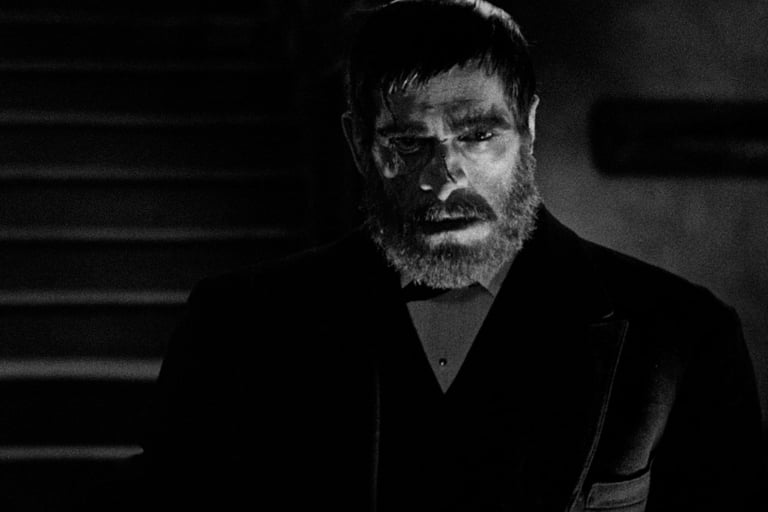The Old Dark House (1932)
“The fact is, Morgan is an uncivilized brute. Sometimes he drinks heavily. A night like this will set him going and once he's drunk, he's rather dangerous.” – Horace Femm


It was 1932, Karloff was riding the wave of success he richly deserved after his portrayal of the Frankenstein monster the year before. Lugosi had moved on to an even bigger speaking role as we saw yesterday – but curiously, Universal decided to hide Karloff under make-up once again, and once again, gave him a largely mute role, other than the occasional grunt.
However, to assure audiences that the Karloff in The Old Dark House was the same as the Karloff in Frankenstein the film opens with a declaration;
“Karloff, the mad butler in this production, is the same Karloff who created the part of the mechanical monster in "Frankenstein". We explain this to settle all disputes in advance, even though such disputes are a tribute to his great versatility.”
The film is set in Wales – and to be honest, despite the exteriors being shot on the Universal backlot, it’s not a bad resemblance, particularly the stonework on the front of the house. So, on their way to Shrewsbury, a trio of travellers are hopelessly lost in a seemingly apocalyptic storm which throws floods and mudslides both in their path and behind them. They’re pretty much cut off, when they see the lights of a house in the distance and decide they have no option but to ask for shelter.
I may have mentioned this before, but I always laugh at the dialogue when Pemberton (Melvyn Douglas) knocks at the door and a small hatch is opened, by Morgan the mute, disfigured and psychopathic butler (Karloff) Pemberton is pleading to be let in with his two friends but Morgan mutters a series of unintelligible grunts. Pemberton exclaims “Even Welsh ought not to sound like that”.
The trio are allowed in. Joining Pemberton are Phillip and Margaret Waverton (Raymond Massey and Gloria Stuart who would much later become known as the aged version of Rose in Titanic. They meet the Femms, whose home this is. Horace (Ernest Thesiger, the campest man in horror who relishes every single line of dialogue, making it memorable with his unique delivery and mannerisms) and his feisty sister Rebecca (Eva Moore) who insists that they can come in, but they can’t have beds – no beds. This couple have left eccentric way back in the rear-view mirror. Horace is as thin as a skeleton, and is fussy beyond description in his manner. Rebecca is a religious nut, judgemental of her “wicked family” as shown in this quote;
“They were all godless here. They used to bring their women here - brazen, lolling creatures in silks and satins. They filled the house with laughter and sin, laughter and sin. And if I ever went down among them, my own father and brothers - they would tell me to go away and pray, and I prayed - and left them with their lustful red and white women.”
He strangeness is compounded with her fascination with Margaret’s chest area in one scene, where she also whispers that her father’s still alive upstairs, and is 102 years old.
The film livens up with the addition of two more weary and wet travellers, Sir William Porterhouse, a loud, bombastic Yorkshireman (Charles Laughton) and his travelling companion, Gladys Perkins (Lilian Bond).
As the evening continues, we discover that Morgan becomes a dangerous nutjob when he’s drunk – and of course he gets drunk. The father is indeed alive and tells more of his family, including a son who’s the worst of the family – and he’s locked in an upstairs room. But as one might assume, not for long. Brother Abel (Bramwell Fletcher who’d be driven to madness by Boris Karloff as The Mummy this same year) pleads his innocence but, well – he’s locked up for a reason.
So, inbetween Morgan attacking Phillip and trying to molest Margaret, Abel having a go at killing Pemberton and then doing his best to burn the house down, and Pemberton and Gladys falling in love and getting engaged in the space of about ten hours, it’s a brisk film, darkly comedic in tone, well played and of course could not have been directed to this level of eccentricity by anyone other than James Whale.
